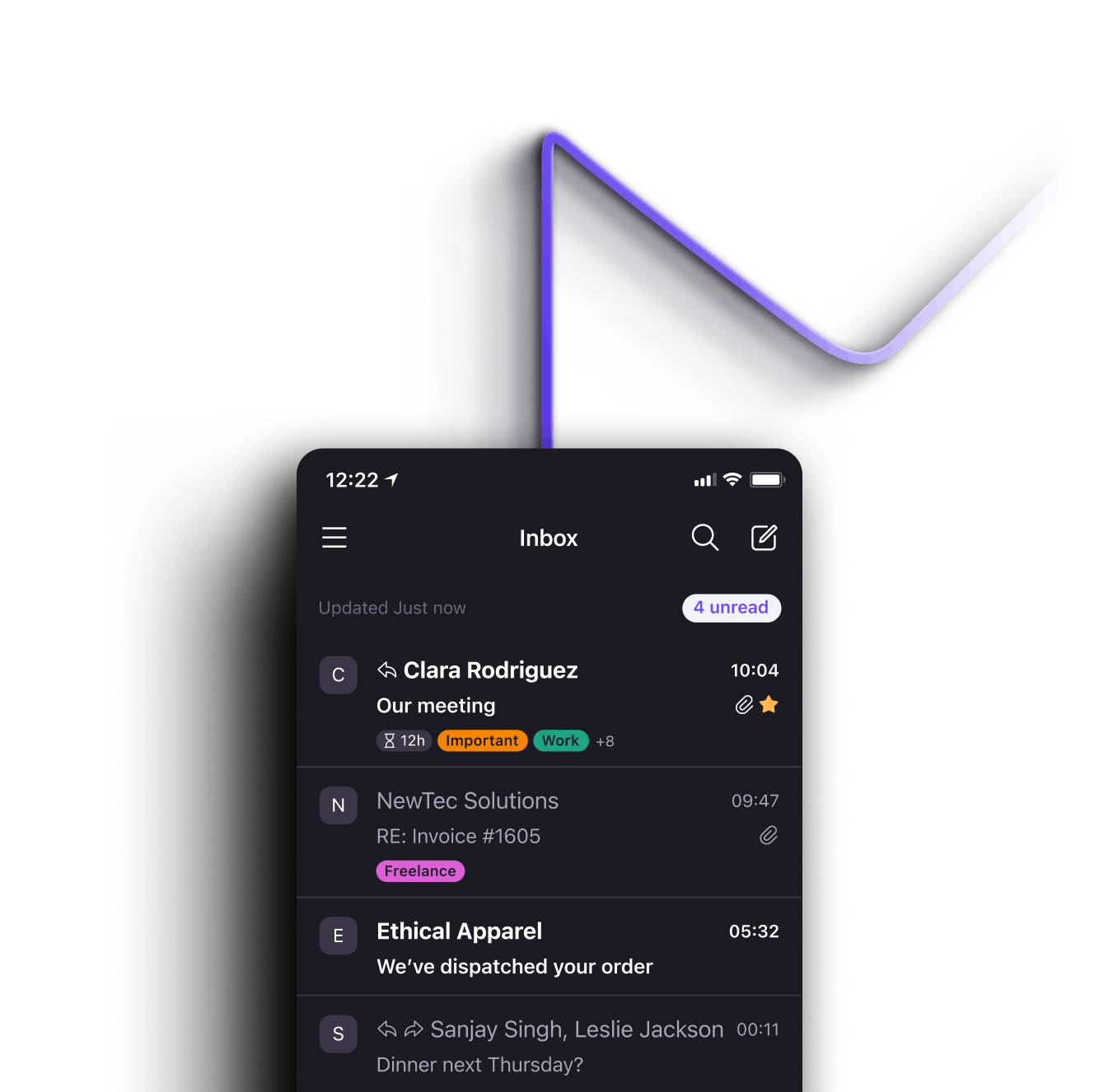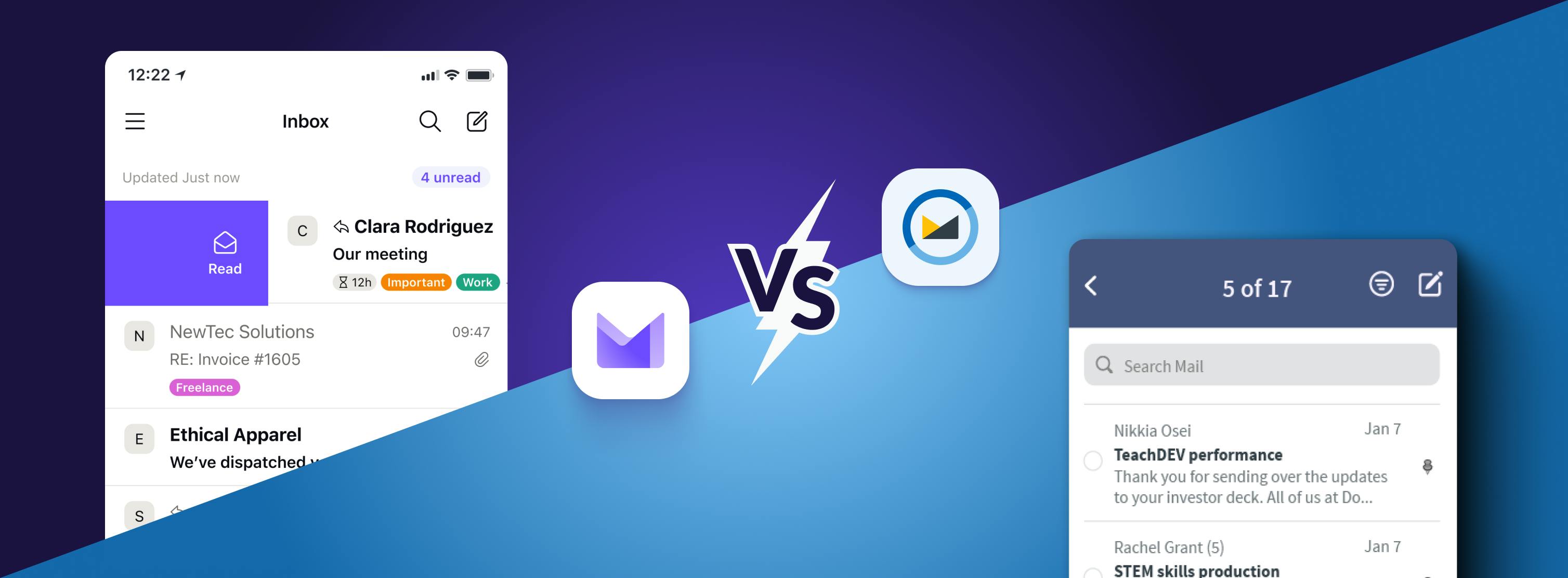
About Proton Mail and Fastmail

Proton Mail is the world’s most popular encrypted email service, based in Geneva, Switzerland.

Fastmail is another privacy-focused Gmail alternative, based in Melbourne, Australia.
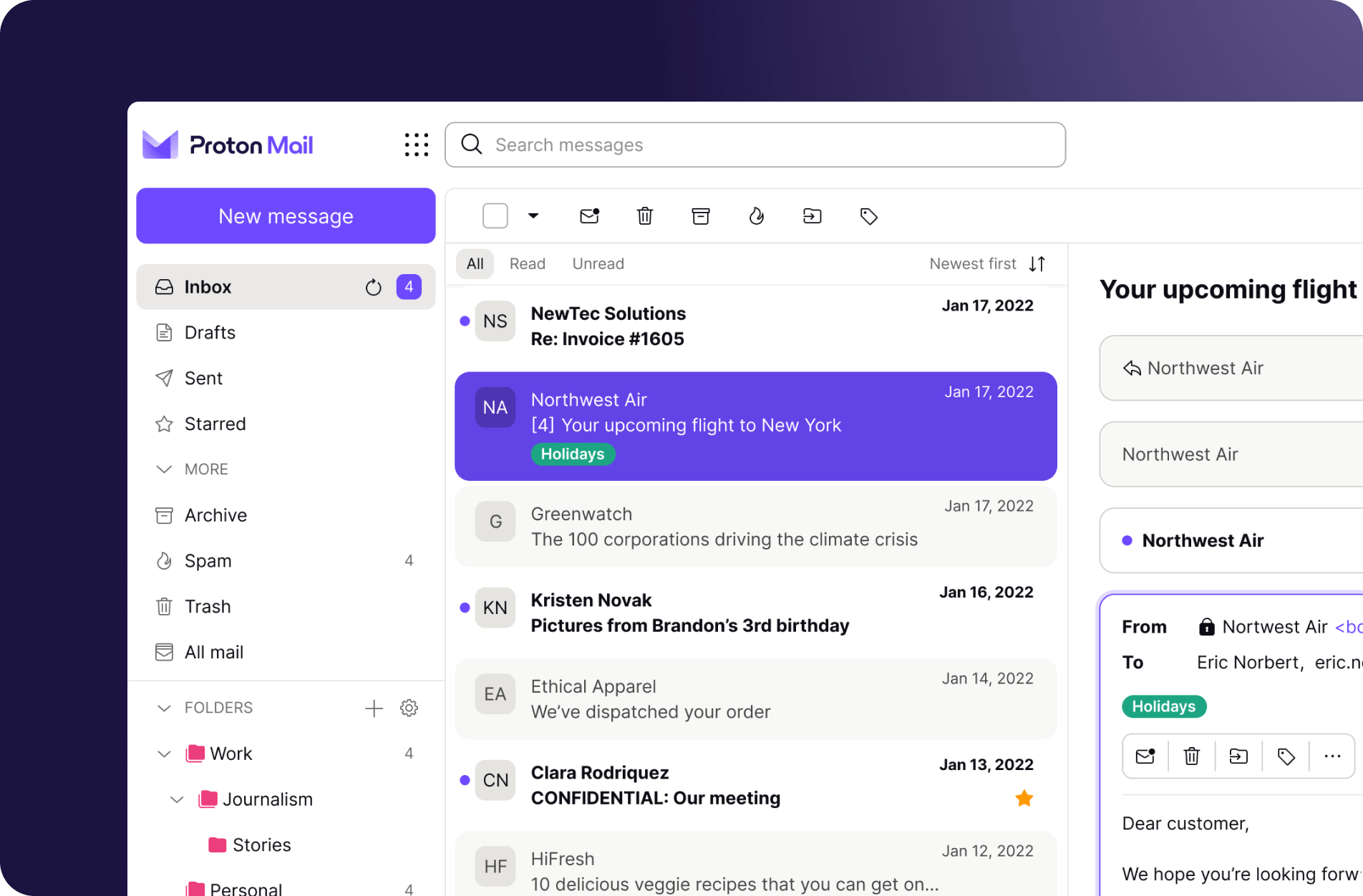
Unlike Gmail or Outlook, neither Proton Mail nor Fastmail tracks you to target you with ads or sell your personal data. But while both services are easy to use, they’re by no means equally private or secure.
Proton Mail is end-to-end encrypted and protected by Swiss privacy laws, so if you’re looking for genuine privacy and security, it’s an obvious choice.
If you’re not sure which is better for you, we compare the main features of Proton Mail and Fastmail below:
| Inbox features |  | |
|---|---|---|
| Price | Free Pay for more storage and products, starting at $3.49/month | Paid 30 day free trial available |
| Your favorite email features | ||
| Works on all your devices | ||
| No ads | ||
| End-to-end encryption | ||
| Zero-access encryption | ||
| Advanced spy pixel tracking protection | ||
| Encrypted calendar & file storage included | ||
| Free VPN included | ||
| Open-source apps | ||
| Protected by strong Swiss privacy laws | ||
| Password-protected emails and expiration |
Proton Mail vs. Fastmail: What’s the difference?
Proton Mail vs. Fastmail: What’s the difference?
Both services are easy to use but offer different levels of privacy and advanced security features.
Privacy
Proton Mail is end-to-end and zero-access encrypted, so no one but you can access your data, not even Proton.
In contrast, Fastmail encrypts your emails but retains the encryption keys so they can access them if requested, like Gmail or Outlook.

Proton Mail and Fastmail both offer email aliases to protect your personal email address, but Proton Mail also has enhanced tracking protection and Password-protected Emails so you can send end-to-end encrypted emails to anyone.
Based in Switzerland and protected by strict Swiss privacy laws, Proton Mail is beyond the reach of intelligence alliances.

Fastmail is based in Australia, where surveillance laws like the Assistance and Access Act allow the government to monitor your emails.
Australia is also part of the Five Eyes intelligence alliance, which means it shares this intelligence with other countries such as the US.
Advanced security
Both Proton Mail and Fastmail allow you to secure your account with two-factor authentication (2FA) with support for hardware security keys like YubiKey. And both services offer advanced customizable spam filters.
But Proton Mail goes one step further with advanced security features like zero-access encryption, meaning they cannot decrypt your emails, or PhishGuard phishing protection, link confirmation, and encrypted and digitally signed Proton Contacts.
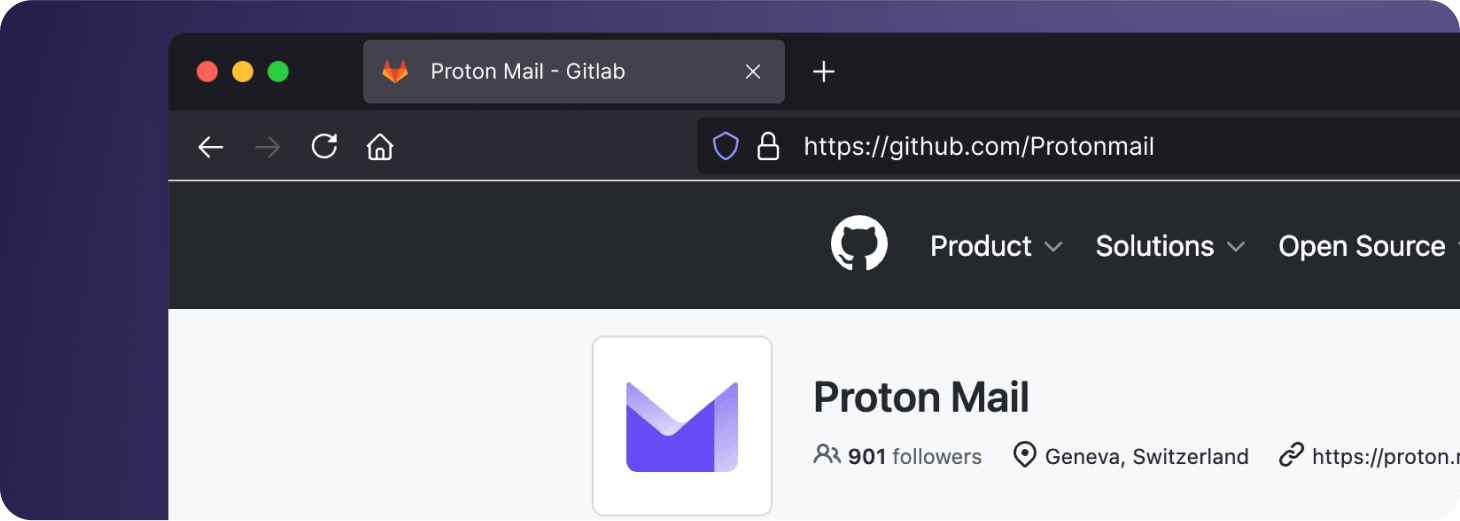
Proton Mail provides strong physical security. Proton owns and operates all its servers in privacy-friendly countries (Switzerland and Germany) and doesn’t use third-party cloud providers.
Proton Mail is also open-source and independently audited, so security experts can verify its encryption and apps are secure.

Fastmail is based in Australia, but its main servers are located in third-party data centers in the US.
While Fastmail’s service is built on open-source standards, its web and mobile apps aren’t open source and so can’t be inspected.
Calendar, storage, VPN
Both Proton Mail and Fastmail include a fully featured calendar and file storage. But all Proton Mail plans include dedicated Proton Calendar and Proton Drive apps plus Proton VPN at no extra cost.

Like Proton Mail, Proton Calendar and Proton Drive are zero-access encrypted, no one but you and those you authorize can access them.
With Proton Drive, you can upload files of any size to your private cloud storage, and Proton VPN lets you check your mail and surf the web privately wherever you go.

Fastmail holds the encryption keys to your encrypted calendar and file storage, so it can share your data with third parties.
The maximum size of files you can upload to Fastmail storage is 250 MB.
Ease of use
Proton Mail and Fastmail both offer easy-to-use web apps, intuitive mobile apps for Android and iPhone or iPad, and IMAP support, so you can use your favorite desktop email apps like Outlook or Apple Mail.
But Proton Mail is more flexible, allowing you to use labels and folders together.
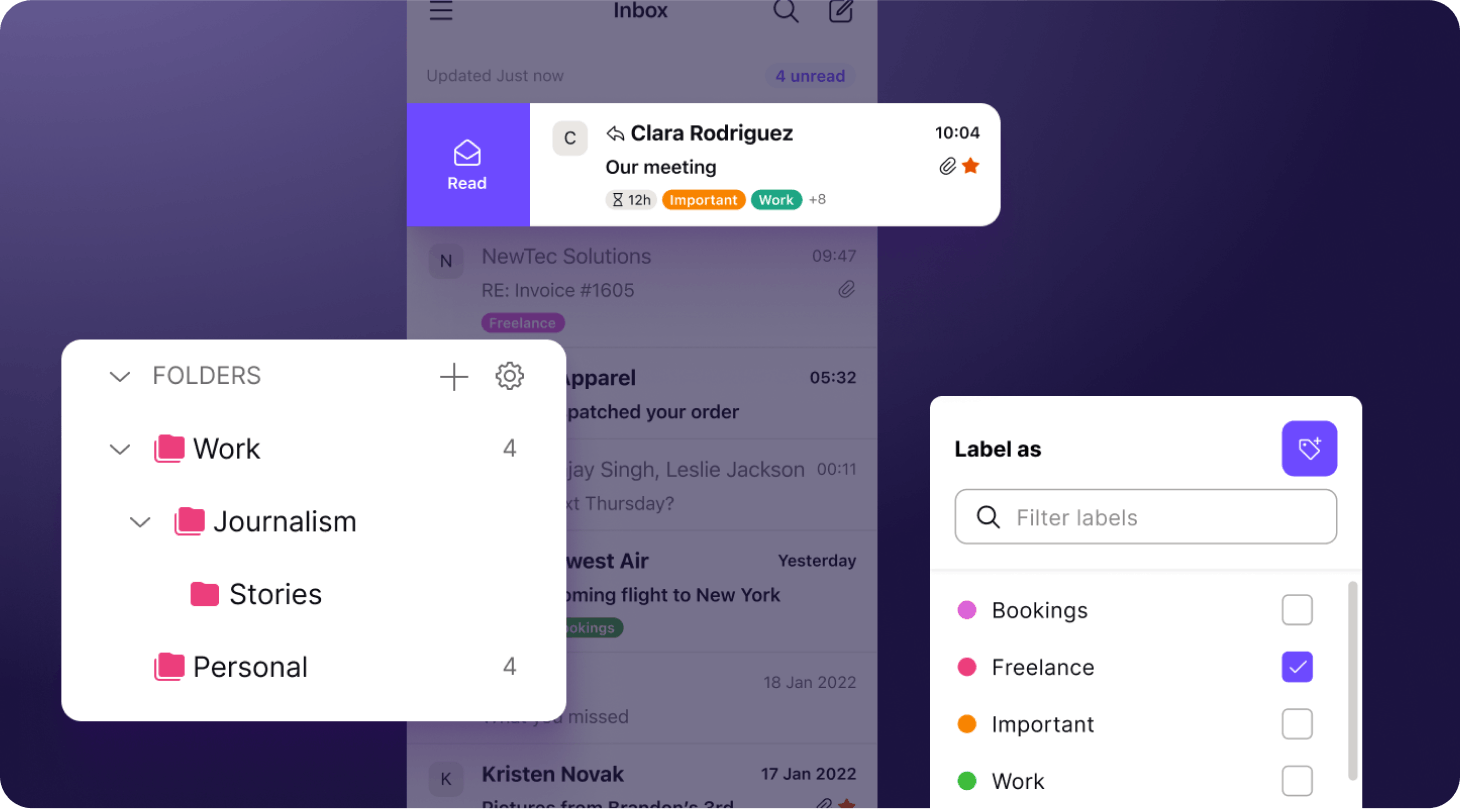
With Proton Mail, you can combine labels and folders to organize your emails the way you like.
Proton Mail also makes migrating from providers like Gmail, Outlook, or Yahoo! simple with Proton Easy Switch — transfer your emails, contacts, and calendars with one click.
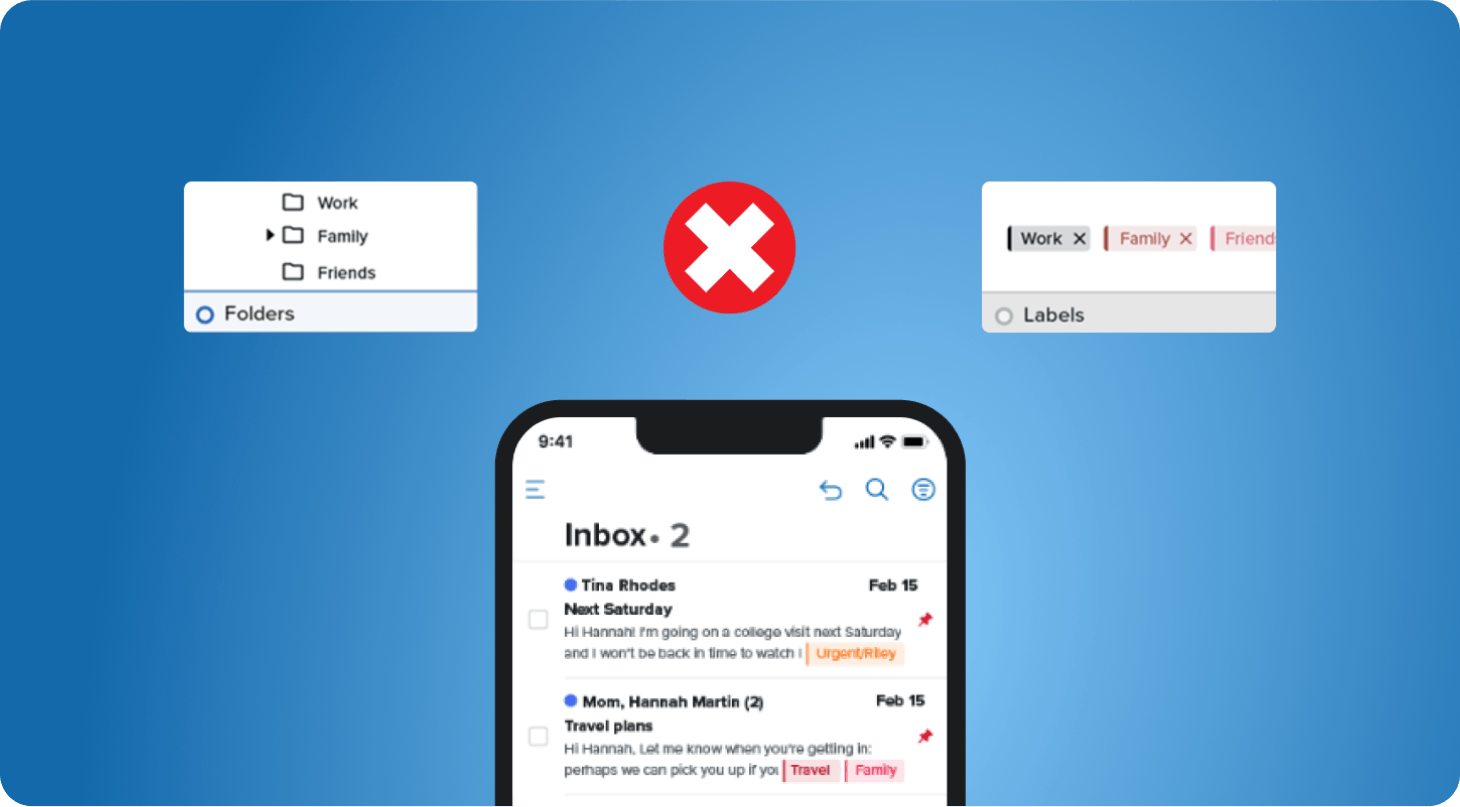
Fastmail makes you choose either labels or folders to organize your emails. You can’t use labels and folders together.

Pricing
- Fastmail has no free plan (30-day free trial only). Fastmail plans start at $2.50/month for 2 GB of storage with a maximum of 100 GB if you get the Professional plan.
- With Proton Mail, you get a free plan with up to 1 GB of secure storage. Paid plans start at $3.49/month for 15 GB of secure storage. With Proton Unlimited, you get 500 GB of storage, support for three custom domains, unlimited hide-my-email aliases, and premium access to all Proton’s privacy services starting at just $7.99/month.
Proton Mail or Fastmail?
Proton Mail and Fastmail are both ad-free, more private alternatives to Gmail or Outlook, but they’re not equally private and secure.
Proton Mail gives you ultimate privacy and security with end-to-end and zero-access encryption, advanced security features, and encrypted Proton Calendar, Proton Drive, and Proton VPN at no extra cost. With Proton, your data is your business, and no one but you can decrypt it, not even Proton.
If you’re looking for a genuinely private Gmail alternative, create a free Proton Mail account and get access to all Proton’s privacy services.


















